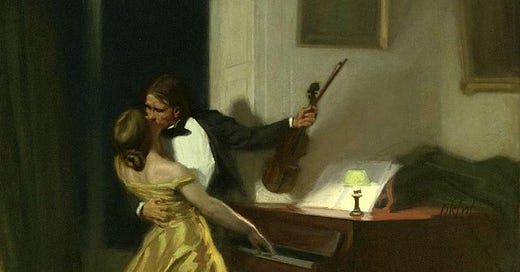Today is Leo Tolstoy’s birthday. To celebrate I’m recommending his extraordinary novella The Kreutzer Sonata, first published in 1889. It’s named after the opening movement of the eponymous Beethoven…
Keep reading with a 7-day free trial
Subscribe to Read the Classics with Henry Eliot to keep reading this post and get 7 days of free access to the full post archives.




